Yesterday I found a curious and so interesting news: "The waxworm is capable of biodegrading resistant plastics".
Waxworms are the great enemy of hives: they destroy their honeycombs and eat honey, but their voracity might be useful, since these insects are capable of degrading plastics as resistant as polyethylene, used mainly to make bags and tins.
The research, conducted by Federica Bertocchini, a researcher at the Higher Council for Scientific Research (CSIC), along with scientists at the University of Cambridge, has been published the last Monday, in the journal Current Biology.
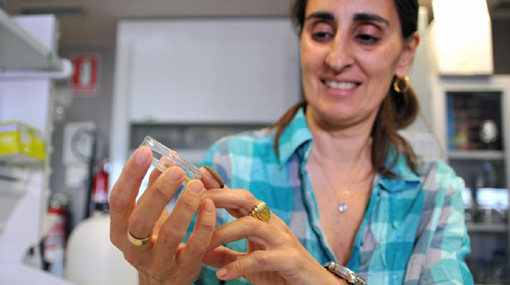
Federica Bertocchini
Plastic waste is a serious global problem. Every year more than 80 million tons of polyethylene are produced worldwide, a very resistant plastic and difficult to degrade. Shopping bags, for example made of low-density polyethylene, take about 100 years to decompose, while the denser and more resistant ones can take up to 400 years to disappear.
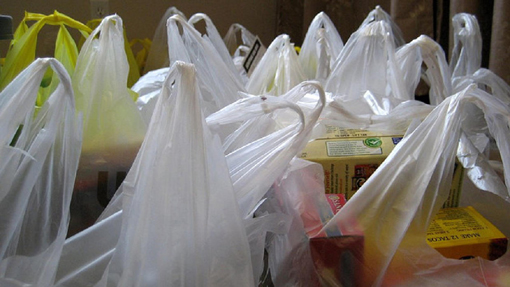
Shopping bags
On average, each person uses more than 230 plastic bags annually, which generates more than 100,000 tons of waste. At present, these types of plastics are burned or degraded with chemical processes, that, in addition to being long, are aggressive with the environment, since for their chemical degradation, corrosive liquids like nitric acid are used.
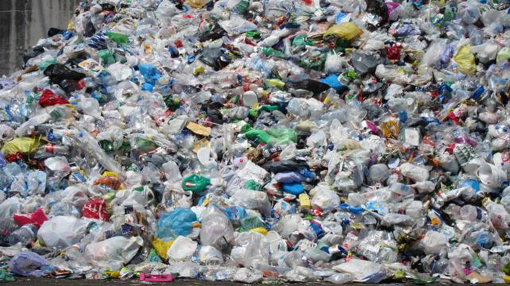
Tons of bags waste
"Plastic is a global problem. Some of them, such as plastic bottles, are partly recycled but most end up in landfills and in the oceans, forming immense islands like the Pacific, that are not destroyed", explained, to Efe, Bertocchini, Researcher at the CSIC Institute of Biomedicine and Biotechnology of Cantabria.
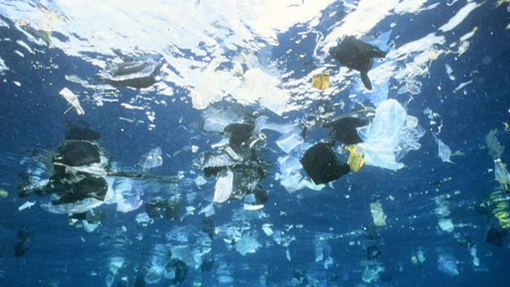
Bags under sea
The waxworm, the larva of the common insect Galleria mellonella or major wax moth,is a scourge of hives, throughout Europe. In nature, worms live, as parasites, in bee colonies. Moths lay their eggs inside hives and worms grow on beeswax (hence the name). But they could be the natural solution to a serious environmental problem. And the author of the discovery found this ability of wax worms almost by accident.
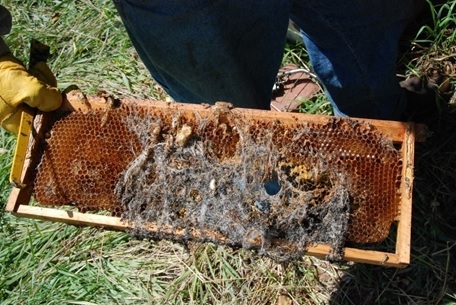
WaxMoth
"I am an amateur beekeeper and one day, cleaning the hives, I discovered the worms, I put them in a plastic bag and, twenty minutes later, it was full of holes, and I knew that those insects were very special", she claimed.
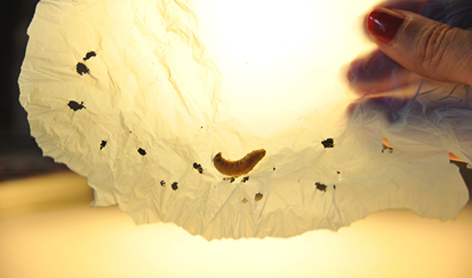
Waxworms eating plastic
With the help of Paolo Bombelli and Chris Howe, the researcher made a lot of checks because "it was essential to check that the worms were not limited to eating the bag, but it had degraded it with a chemical process and at high speed. It was something really impressive”.
“In fact, in experiments 100 waxworms are able to biodegrade 92 milligrams of polyethylene, in 12 hours, it is actually very fast".
The finding, which has already been patented by the researchers, is important because it will allow study the molecular mechanism, used by the worm to destroy the plastic. After all, "wax is a polymer, a kind of 'natural plastic', and has a chemical structure not unlike polyethylene", says Bertocchini.
The researchers still do not know how biodegradation occurs, which could be due to a bacterium, that lives in symbiosis in the worm's gut or an enzyme, a molecule generated by the insect. If so, "the objective would be to isolate the molecule and try to reproduce it, in the laboratory, to manufacture it on an industrial scale", says the researcher.
If researchers were able to isolate and produce this molecule, it could be used to biodegrade millions of tonnes of plastic, in landfills, and prevent them from accumulating in the environment. "We could begin to effectively eliminate this tough material", says Bertocchini.
However, for the researcher, "the most beautiful thing is that we found this finding in nature. For us, it is shocking that nature itself can give us the solution to the serious environmental problem of plastics".
I hope that you have liked this curious news.
Until my next post, kind regards,
Luis.
Sponsored by Costaluz Lawyers.
Please click below:
